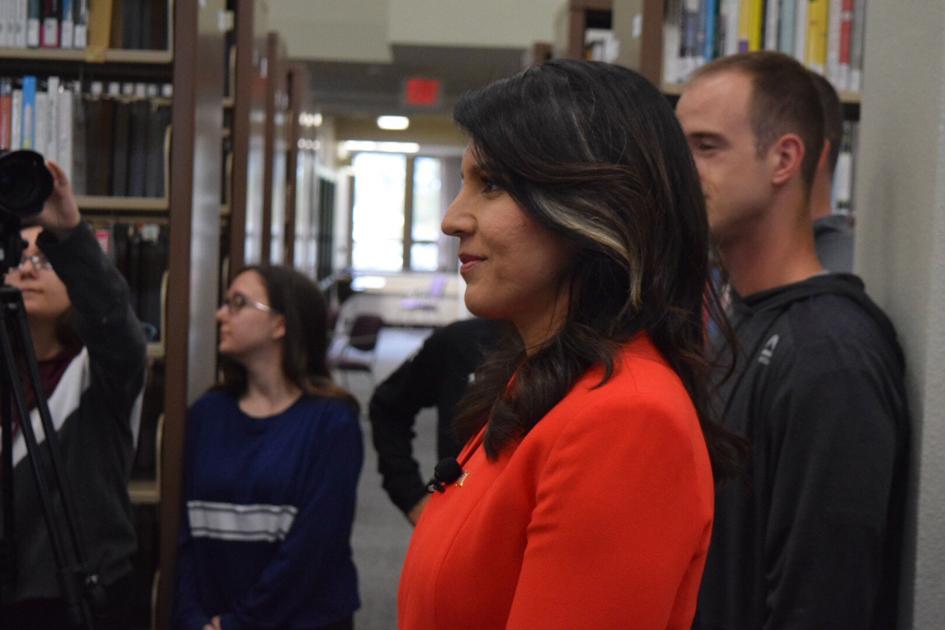Gabbard in New Hampshire
10/4/19
“I think we need to look at every one of our military bases around the world and assess its value and its use towards our national security interests, and the other issues that we’re facing,” Gabbard continued. “This issue of climate change and refugees is one that not only we, the United States, are concerned about, but that we need to work with other countries we’re dealing with in both responding but also, again, working to try to stem these threats from getting worse.”
That focus shift away from the United States’ lead role on the global stage toward a more isolationist, diplomacy-first approach is what Gabbard argues will help the country better focus its resources on stemming the worst effects of climate change.
“When you look at the points I’m raising about the need to end our country’s long-held foreign policy of being the world’s police, ending these wasteful, counterproductive wars of choice … redirecting those resources towards what we need here at home, one of those things, very importantly, it is climate change,” she said, “and focusing on that transition we need to make here, both at the federal level, the state and local level, individually, but also working within the global community to address those environmental threats.”

